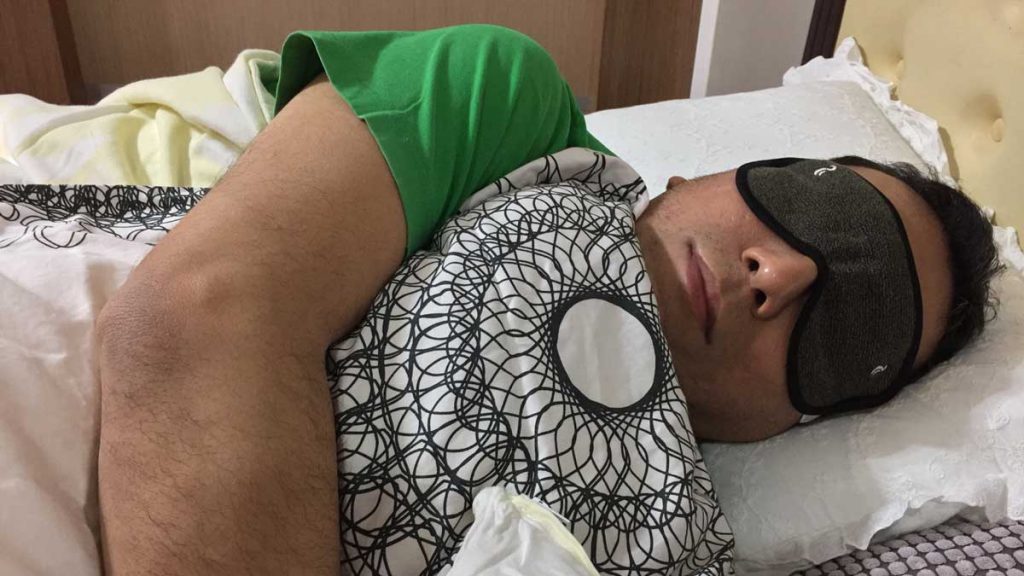Did you miss part 1, part 2, part 3, or part 4?
We need to address lifestyle factors: sleep, hydration, exercise, and stress management.
Sleep is critical—we know this, but we don’t treat it with the respect it deserves. I would argue that sleep is the greatest under-utilized performance enhancer accessible to everyone. Sleep is crucial to the recovery of bodily systems.
So what is sleep?
In an ideal state, we will have 4-6 sleep cycles per night, lasting anywhere from 90-120 minutes. Rapid Eye Movement (REM) is where we dream and where memories are consolidated. Remember back in the 2000s when you needed to occasionally defragment your hard drive to help it work faster? That’s what’s happening here. Another illustration is when you go through your phone and delete 30 similar pictures settling on the one you actually want to keep.
Slow Wave Sleep (non-REM) is the slowing down of bodily function, where your core body temperature drops, and is the most restful sleep.
Your Circadian rhythm is your biological clock. It is based on 24 hr days and is integral to sleep, hormone production and release, and body temperature. This rhythm is greatly influenced by stress, nutrition, exercise, medications, and behaviors.
What does sleep do?
It might be easier to answer what sleep doesn’t do. It seems that sleep impacts everything because, in many ways, it does, but I’ll hit the 30,000 foot view. Sleep does the following:
- Restores endocrine balance
- Restores immunological balance
- Facilitates recovery of the nervous system
- Facilitates recovery of the metabolic system
- Increases parasympathetic activity
- Triggers the release of growth hormone and enables tissue repair
What happens when you don’t get enough sleep?
- Cardiovascular and respiratory problems – reduced ventricular filling, reduced cardiac recovery, worsened heart rate variability, reduced endothelial repair, reduced ventilatory reserves, altered gaseous exchanges leading to reduced oxygen consumption.
- Central and peripheral nervous system impairments – Reduced cortisol metabolism, altered blood glucose and lipids, reduced motor unit recruitment, poor motor control, altered focus and attention, inability to think critically, poor decision making, altered fight or flight tendencies.
- Endocrine System imbalance – Poor pituitary- hypothalamus interaction, reduced endocrine secretion, reduced growth hormone secretion, elevated cortisol, poor healing, inability to cope with stress, high hunger due to elevated grehlin (hunger hormone), and lowered leptin (satiety hormone)
- Immune system down-regulation – Altered immune memory, altered signaling and healing, and delayed tissue repair.
- Gastrointestinal issues – Altered macro/micronutrient absorption, increased food allergens, poor oxidation, increased fatigue and poor neuro-muscular performance.
For athletes, this will manifest in overtraining, injuries, eating disorders, and poor performance.
Sleep is kind of important. Only five nights of 50% sleep reduction will dramatically reduce protein synthesis. So when you get poor sleep, you are setting yourself up for failure in almost every area of life and health. For every hour under 7 hours of sleep, you incur a 6% mortality risk. If you want to be a healthy person and be here to play with your grandbabies you need to stop the late-night TV binges and early mornings. Aim for 7-9 hours of quality sleep. Just being in bed is not quality sleep.
So let me provide you with a sleep hygiene checklist so you can get your sleep life in order.
- Have a bedtime routine that you do every night.
- When the sun goes down, dim the lights in your house. Blue light from TVs, computers, and cell phones inhibit melatonin production, so if you must be on a computer or in front of a screen, invest in some blue light-blocking glasses.
- Use white noise like a fan or app.
- 30 minutes to an hour before bed, choose a relaxing activity like reading a book.
- Take a hot bath.
- If you are stressed, I suggest making a list of all the things that are causing you anxiety. Just getting them out can help get them off your mind, then make a list of things you are thankful for. If you’re a person of faith, this is a perfect time to pray over these things and get your heart settled for a peaceful night.
- Stop drinking water a few hours before bed, that way you don’t need to pee in the middle of the night. Sip as needed.
- Choose a time to wake up at the same time every day.
- Maximize morning sunlight. Going outside and getting the sun on your face in the morning helps to set your biological clock.
If you can get in the habit of doing these things, your sleep and life will drastically improve.
In the next post, we will explore hydration, exercise, and stress management.

